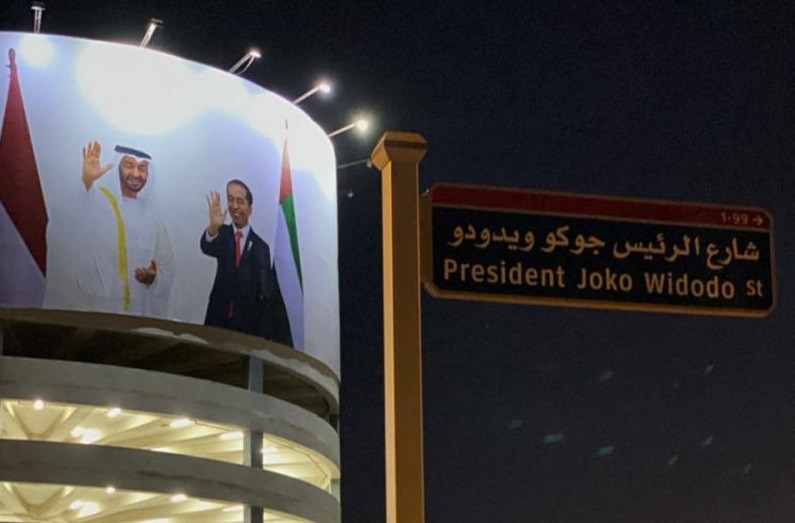Popular Reads
Top Results
Can't find what you're looking for?
View all search resultsPopular Reads
Top Results
Can't find what you're looking for?
View all search resultsFuss over a street name
While Turkey looks to have found no problem with Indonesia’s request, the conservative Muslims in Indonesia cannot accept their government’s tribute to Ataturk.
Change text size
Gift Premium Articles
to Anyone

A controversy is looming over the government’s plan to rename a street in Jakarta's Menteng area after the founding father of modern and secular Turkey, Mustafa Kemal Ataturk, in exchange for Ankara’s acceptance to name a street in front of the Indonesian embassy there after Sukarno, our founding president.
What was seen as a symbol of close diplomatic relations between the two countries has divided the city’s Muslim population and, due to the sensitivity of the matter, the government may have to look for a plan B.
While Turkey looks to have found no problem with Indonesia’s request, the conservative Muslims in Indonesia cannot accept their government’s tribute to Ataturk. Ranging from Indonesian Ulema Council (MUI) deputy chairman Anwar Abbas to Prosperous Justice Party politician Hidayat Nur Wahid, they insist the government find a replacement for Ataturk. For Anwar, the government’s move “will hurt Indonesian Muslims”.
The MUI’s disagreement should not come as a surprise. The country’s highest Muslim clerical council issued in 2005 a fatwa that banned liberalism, pluralism and secularism, among other controversial non-binding, but influential, edicts.
Indonesian Ambassador to Turkey Lalu Muhammad Iqbal said the plan was tabled to deepen the relationship between Indonesia and Turkey, which happen to be the world’s largest predominantly Muslim countries. But beyond religious proximity, cooperation between the two nations has been robust, covering many fields ranging from economy to defense. The two countries celebrated 70 years of diplomatic relations last year and are accelerating their negotiation of the Indonesia-Turkey Comprehensive Economic Partnership Agreement.
Both are members of the Group of 20, whose leaders are now gathering for a summit in Rome, and have founded cross-regional economic groups like MIKTA, which also involves Mexico, the Republic of Korea and Australia, and the D-8 Organization for Economic Cooperation.
At least seven Indonesian figures have been memorialized as street names overseas. A street in Rabat is named after Sukarno in honor of his role in initiating the Asia-Africa Conference in 1955. The Dutch government has named four streets after Mohammad Hatta, Kartini, Pattimura and Munir, while in Abu Dhabi a street is named after President Joko “Jokowi” Widodo in exchange for the naming of the elevated section of the Jakarta-Cikampek toll road after Prince Mohammed bin Zayed.
True, there are valid reasons to pay such high respect to foreign leaders or figures who have contributed a lot to our country. The government will set a precedent if it proceeds with its plan to name a street in Jakarta after Ataturk.
Jakarta Deputy Governor Ahmad Riza Patria has suggested through Ambassador Iqbal that the Turkish government pick a city for the street’s name instead of a figure just to avoid the controversy here. In line with diplomatic etiquette, however, there should be no question about why Ankara proposed Ataturk, the way the Turkish government respected Indonesia’s choice of Sukarno.
The dust surrounding the swap plan should be settled so as not to hurt the decades-long ties between the two countries. While we should acknowledge Ankara’s preference, Jakarta had better designate a street outside Menteng, which has been dedicated to our revered national heroes.










